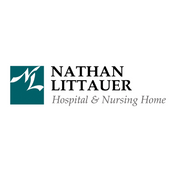What Is Supraventricular Tachycardia?

Supraventricular tachycardia (SVT) refers to a condition where the heart beats abnormally fast, but not due to stress or exercise. For most people with this health problem, the heart pumps blood through the body normally. However, the heart's electrical system malfunctions from time to time, causing an episode. If you or a loved one has SVT, here’s what you need to know about the symptoms, causes, and how a cardiologist can help.
What Are the Symptoms of SVT?
In addition to having a faster heartbeat, you’ll notice palpitations in the chest, which feel like fluttering or racing. Additionally, shortness of breath, dizziness, fainting, and tightness in the chest are common symptoms. Finally, you may sweat more than normal and notice a pounding pulse in the neck.
What Causes SVT?
 In some cases, episodes will be brought on by an obvious trigger, such as nervousness, anxiety, or insomnia. Other times, common conditions, activities, or substances can lead to SVT, including alcoholism, drug use, surgery, pregnancy, smoking, thyroid disease, or heart failure.
In some cases, episodes will be brought on by an obvious trigger, such as nervousness, anxiety, or insomnia. Other times, common conditions, activities, or substances can lead to SVT, including alcoholism, drug use, surgery, pregnancy, smoking, thyroid disease, or heart failure.
How Is It Treated?
SVT doesn’t always require treatment, especially if your symptoms are mild. However, if the fast heart rate doesn’t return to normal on its own, or it’s leading to physical problems—such as dizziness, fainting, or chest pain—further treatment will be needed.
For sudden and acute episodes, a cardiologist may recommend vagal maneuvers. These involve placing a wet, ice-cold towel on your face, or breathing out using the stomach muscles without letting air exit via the mouth or nose. Both of these options are usually done while lying down on your back. If these measures don’t resolve the issue, a medical professional may prescribe a fast-acting medication to slow the heart rate. If this doesn’t work, a surgeon may need to reset the heart rhythm using a procedure called electrical cardioversion.
If you or a loved one has SVT, contact Nathan Littauer Hospital & Nursing Home. This acute care hospital was founded in 1981 and serves Fulton County, NY, and the surrounding areas. Their cardiologists are trained to deal with health issues like SVT, and they’re known for using cutting-edge methods to prevent and reduce symptoms. Additionally, their staff members are kind, caring, and patient-focused. Visit their website to learn more about their services, or call (518) 725-8621 to set up an appointment.
About the Business
(149 reviews)
Have a question? Ask the experts!
Send your question

